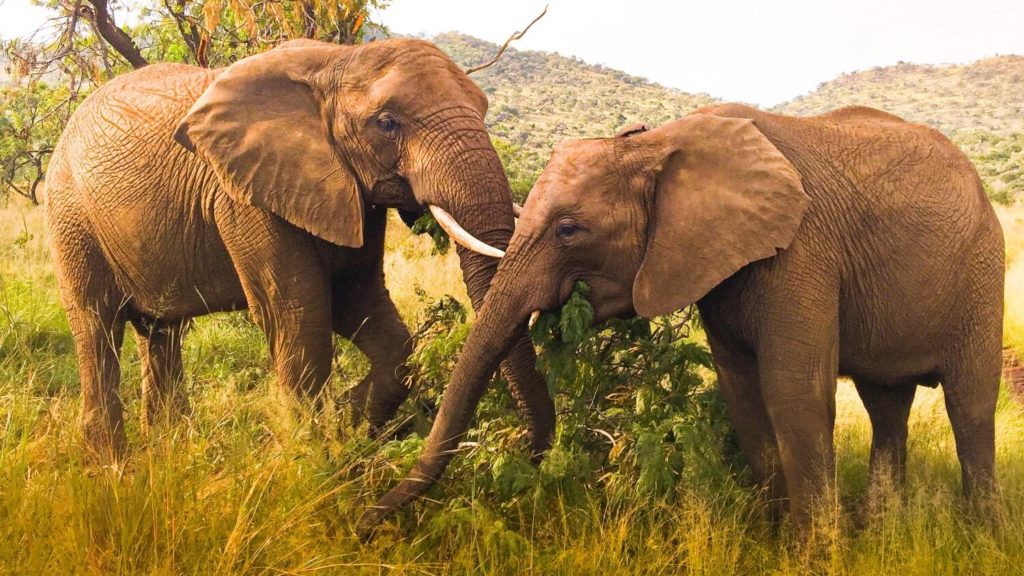Elephant poaching in Kenya has fallen by 91 percent due to effective wildlife conservation and anti-poaching efforts.
So far, just seven elephants have been poached in 2020. This is down from 34 in 2019, and 80 in 2018. While in the last six years, wildlife poaching, in general, has fallen by 90 percent.
The total number of elephants in Kenya more than doubled between 1989 and 2018. Tourism Minister Najib Balala announced on Wednesday that the population has risen from 16,000 to more than 34,000 since 1989.
“In the last couple of years, we have managed to tame poaching in this country,” he told reporters at the Amboseli National Park. While visiting Amboseli, Balala helped workers attach a tracking collar to a bull elephant. He also participated in the naming of a pair of twin calves.
Historically, global demand for ivory has driven poaching in Kenya and other sub-Saharan African countries. Despite a ban on the international ivory trade, tens of thousands of African elephants are still poached every year.
Enhanced surveillance, anti-poaching units, and updated legislation have led directly to Kenya’s drastic reduction in elephant deaths. Illegal hunters face now increased prison time and larger fines if convicted for poaching or trafficking wildlife trophies.
In 2016, Kenyan President Uhuru Kenyatta destroyed thousands of seized elephant tusks and rhino horns. The stockpile contained 105 tonnes of ivory from approximately 8000 animals with an illegal market value of $226 million.
“Kenya is making a statement that for us ivory is worthless unless it is on our elephants,” he said at the time.

Elephant Poaching and the Illegal Wildlife Trade
Some of the most endangered animals in the world live on the African continent.
Across Africa, aggressive anti-poaching efforts aim to eradicate wildlife trafficking for good. Tracking technology and other forms of surveillance have proved particularly useful. While community involvement has proved essential in Zambia, where elephant poaching has virtually ended.
Anti-poaching rangers, such as the all-female Akashinga unit, rely heavily on local communities to eliminate poaching. The all-vegan team protects endangered wildlife through direct action and co-operation in a way that will remain sustainable long-term.
Despite declining animal populations, poaching still exceeds profits of $20 billion annually. According to the World Wide Fund for Nature (WWF), insufficient anti-poaching efforts and law enforcement enable poaching and trafficking, in general.


